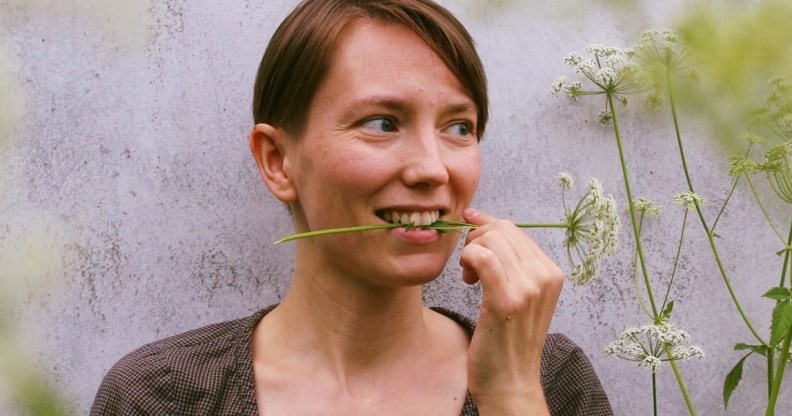Russian activist arrested for vagina drawings acquitted of pornography charges in rare win

Red Cross worker and St Petersburg activist Daria Apakhonchich was arrested for taking part in a “vulva ballet” street performance in support of Yulia Tsvetkova. (Darya Apakhonchich/ Facebook)
An LGBTQ+ feminist activist in Russia has been acquitted of pornography charges in a rare win for queer rights in the country.
Yulia Tsvetkova was arrested in 2019 after posting drawings of vaginas on social media to combat societal body image norms. She was charged with distributing pornography and spent four months under house arrest.
She was also charged in July 2020 over the same drawings with four counts of promoting non-traditional sexual relations among minors under article 6.21 of the Code of Administrative Offenses, better known as the “LGBT propaganda” law. She was fined 125,000 rubles (£1,808) for two of the charges.
Attempts to exonerate Tsvetkova began after the Russian human rights organisation Memorial recognised her as a political prisoner and advocated for her release in a complaint, which prompted the case to be opened.
She was acquitted of all charges on Friday (15 July) in a Komsomolsk-on-Amur court, according to sources reported by The Moscow Times. Messages in a group chat created by supporters said: “The three-year long trial ended with victory for the defence. We are happy, but not completed yet. The prosecutor’s office has 10 days to appeal.”
According to the messages, prosecutors had also requested a sentence of at least three years in a prison colony. The website Free Yulia Tsvetkova said that “searches were carried out at home and at work” upon her arrest.
“While under house arrest, Yulia was denied access to necessary medical care. She and her mother have experienced months of harassment,” the site continued.
Russian lawmakers proposed to extend the country’s “gay propaganda” law that Tsvetkova was charged with to adults on 11 July. The legislation has been used liberally to prosecute LGBTQ+ activists as well as to prevent minors from consuming LGBTQ-inclusive literature or media.
State Duma’s information committee chairman Alexander Khinshtein claimed the law was “insufficient” in its current form, saying that “we propose to fully extend the ban on that sort of propaganda among audiences of all ages (offline, media outlets, the internet, social media, as well as in cinema theatres).”
According to LGBTQ+ advocacy group IGlA-Europe, Russia is among the least-queer friendly nation in Europe. This year’s “Rainbow Europe” index showed that Russia is 46th out of 49 European countries, surpassing Armenia, Turkey, and Azerbaijan at the bottom of the list.

